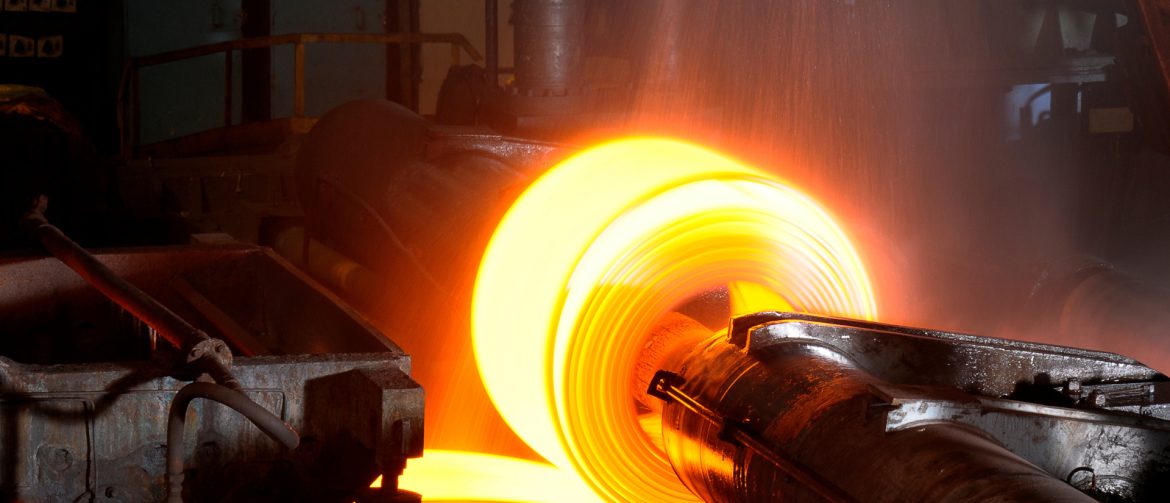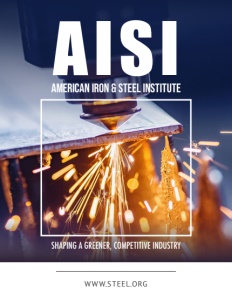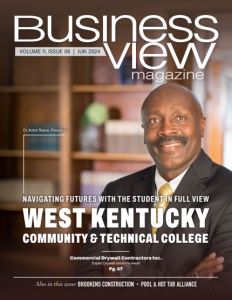American Iron and Steel Institute (AISI)
Shaping a Greener, Competitive Industry
A commitment to excellence positioning as a leader in the sector
With a legacy dating back to 1855, the American Iron and Steel Institute (AISI) has been pivotal in shaping and supporting the steel sector. Kevin Dempsey, President and CEO, represents the diverse array of steel producers across the United States. Dempsey shares insights into AISI’s work, the methods of steel production, and the institute’s commitment to public policy advocacy and market promotion, highlighting the dynamic nature of the steel industry.
AISI stands out by representing producers across all three main categories of steel: carbon, alloy, and stainless steel. Carbon steel, widely used in manufacturing cars, refrigerators, and buildings, is just one facet of AISI’s representation. Alloy steels, which incorporate additional elements, and stainless steel, known for its high chromium content and corrosion resistance, are also part of AISI’s portfolio. This representation distinguishes AISI from other trade associations that often concentrate on a single type of steel.
AISI supports various production methods. One involves processing iron ore through an integrated method to produce pig iron, which is then transformed into virgin steel. Alternatively, steel can be produced by recycling steel scrap in an electric arc furnace, aligning with the industry’s focus on sustainability. Dempsey emphasizes that AISI’s inclusive representation of iron ore-based and scrap-based steel production methods is a key strength, particularly as the industry evolves towards innovatively incorporating both approaches.
Public policy advocacy
AISI’s mission encompasses significant advocacy on public policy issues and government regulations that impact the steel industry. The organization diligently works to ensure that the interests of steel producers are well-represented in policy discussions. Moreover, AISI promotes steel as the material of choice in two of its largest markets in the U.S.: construction and automotive.
Extensive industry statistics are maintained, providing valuable data on production volumes, product types, shipment quantities, and the balance between domestic and imported steel. The statistics are reported weekly, monthly, and annually, offering a detailed picture of the industry’s health and trends. The data collection and dissemination are vital for industry stakeholders to make informed decisions and strategize effectively.
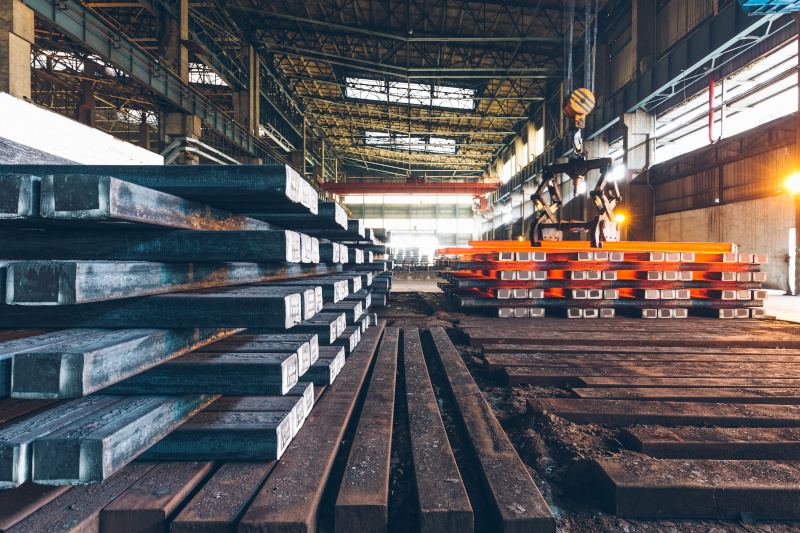
AISI Membership
The American Iron and Steel Institute’s (AISI) membership comprises two primary categories: producer members and associate members. Producer members include companies directly involved in steel production or iron ore mining and beneficiation. These members encompass a range of operations, from those focused on carbon steel to those specializing in recycling steel scrap into new steel. Many companies are integrating traditional and modern production methods to enhance their capabilities.
For instance, some producer members employ the direct reduction method, using natural gas to produce iron pellets that can be blended with recycled steel scrap, thus creating higher steel grades with both recycled and virgin content. The adaptability and innovation reflect the evolving nature of the steel industry and the diverse approaches within AISI’s membership.
On the other hand, associate members are integral parts of the steel supply chain, though they may not produce steel themselves. These companies provide essential raw materials, services, and further processing and distribution of steel products. The broad representation ensures that AISI covers the complete steel supply chain, from raw materials to finished products, supporting various industries in the United States.
Evolution of the steel industry
The steel industry has shifted towards recycling, with steel being one of the most recycled materials globally. Approximately 70% of steel production now utilizes electric arc furnaces. The industry has also seen changes in company ownership and operations, driven by cycles of restructuring and consolidation. The ongoing adaptation includes reducing energy consumption and increasing reliance on renewable energy sources.
Innovation has been a cornerstone of the steel industry’s response to evolving market demands. The automotive industry has driven advancements in producing lighter, stronger steel to enhance fuel efficiency without compromising safety. AISI members have developed advanced high-strength steels that are robust and flexible, essential for modern car manufacturing.
Similar innovations are being applied to other sectors, such as renewable energy, where steel is essential for constructing wind towers. The advancements demonstrate the industry’s commitment to continuous improvement and adaptation to new challenges and opportunities.
Combating unfair trade practices
The global nature of the steel industry means that almost every country aims to maintain a strong domestic steel sector due to its importance in infrastructure, energy production, and economic development. This often leads to government intervention in the form of subsidies or export restrictions on raw materials, such as iron ore and steel scrap, to support local industries. These practices can result in overproduction and dumping, where excess steel is sold on the global market at prices below production costs, severely impacting industries like those in the United States that do not receive government support.
To combat these unfair practices, the U.S. relies on strong trade laws that align with international standards set by the World Trade Organization (WTO). Maintaining and enforcing these laws is crucial for ensuring U.S. steelmakers can compete on a level playing field. AISI’s role involves daily advocacy to ensure these laws remain effective and responsive to new challenges.
Dempsey stresses the significant impact of China’s steel industry, which has grown from slightly larger than the U.S. in 2000 to more than ten times its size today. Substantial government subsidies and ownership have driven this growth, leading to global overcapacity. Excess Chinese steel has been dumped on international markets, affecting the U.S. and steel industries worldwide.
To address this, AISI collaborates with international counterparts to form bodies that tackle the global overcapacity issue. Under international pressure, China has reduced its domestic steel production growth but has shifted its focus to exporting steel production capabilities through initiatives like the Belt and Road Initiative. This involves subsidizing the construction of steel mills in other countries, particularly in Southeast Asia, exacerbating the problem of global overcapacity.
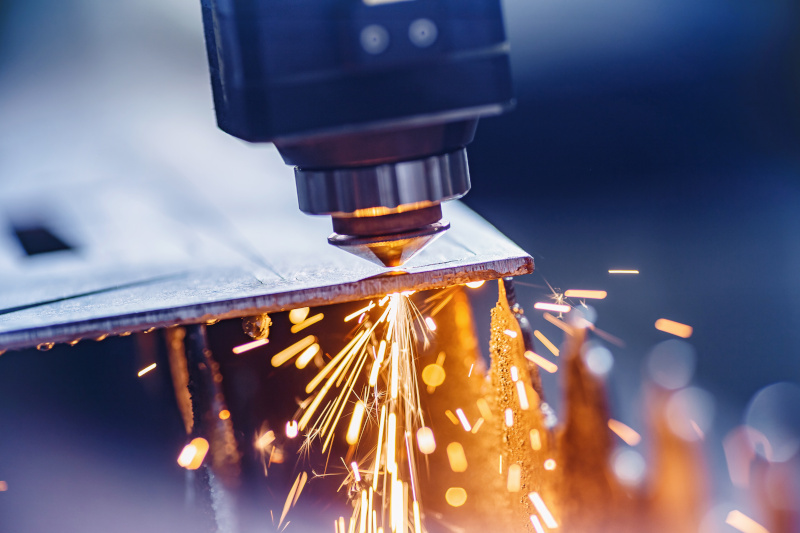
Legislative efforts
One of AISI’s current legislative priorities is updating U.S. trade laws to address cross-border subsidies, where China subsidizes steel production in other countries. This emerging issue requires new legal frameworks to ensure that such practices do not undermine the competitiveness of U.S. steel producers.
In addition to trade issues, AISI is deeply involved in addressing environmental regulations. The steel industry’s efforts to reduce carbon and other greenhouse gas emissions are critical to meeting broader decarbonization goals. The newly formed sustainability committee at AISI reflects this priority, focusing on cleaner production methods, energy efficiency, and the industry’s role in supporting renewable energy initiatives, such as wind and solar power and steel production for electric vehicles.
Dempsey proudly states, “The American steel industry is leading the world in environmental responsibility, producing steel with half the global average emissions. This is a reflection of our unwavering commitment to sustainability.”
Future outlook
Looking ahead, AISI continues to focus on education and advocacy to highlight the critical role of American-made steel in achieving environmental and economic goals. The organization is working on new trade measures incorporating environmental sustainability, such as carbon tariffs, to prevent importing cheap, polluting steel. Collaborations with the European Union aim to establish a unified approach to carbon trade measures, ensuring that clean steel producers are not undercut by environmentally damaging imports.
Dempsey stresses that steel is indispensable for a sustainable future. A McKinsey study identified steel as essential across all clean energy technologies. AISI’s ongoing efforts to innovate, educate, and advocate will ensure that American Steel remains at the forefront of the global transition to a greener economy. Dempsey notes, “Steel is the backbone of our clean energy future. The essential material from wind towers to solar panels will power our transition to a sustainable economy.”
Adaptation and innovation
The steel industry has seen significant technological advancements and structural changes. Innovations in production methods, such as the increased use of electric arc furnaces for recycling steel, have reduced the industry’s energy footprint. Additionally, the development of new grades of advanced high-strength steel for the automotive industry exemplifies the industry’s continuous adaptation to meet evolving market demands. These steels are lighter and stronger, contributing to more fuel-efficient and safe vehicles.
Similarly, innovations are being applied to constructing wind towers and other renewable energy infrastructure, which requires steel that meets high performance and efficiency standards. The advancements ensure that the steel industry remains competitive and capable of meeting the diverse needs of its customers.
Through its comprehensive representation of the steel industry and its proactive approach to addressing trade, environmental, and market challenges, AISI plays a crucial role in supporting American steelmakers’ ongoing evolution and competitiveness. Dempsey’s leadership and the institute’s strategic initiatives ensure the steel industry thrives amid changing global dynamics.
AT A GLANCE
American Iron and Steel Institute (AISI)
What: The American Iron and Steel Institute (AISI) is a trade association representing North American steel producers. Its focus is on promoting the sustainable development and use of steel, advocating for fair trade practices, and supporting the industry’s technological advancements.
Where: Headquarters, Washington, DC
Website: https://www.steel.org/
